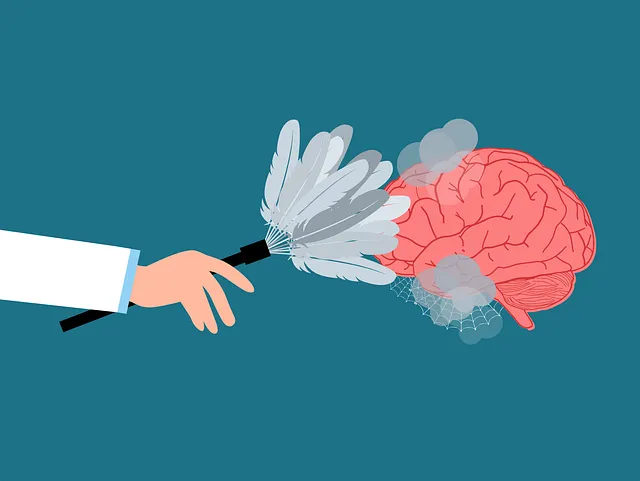Kaiser Permanente Wheat Ridge prioritizes cultural sensitivity in delivering effective mental healthcare. By recognizing and respecting diverse backgrounds, they offer tailored services that build trust and improve outcomes. Through emotional intelligence training for providers and culture-sensitive workshops, Wheat Ridge goes beyond traditional techniques. Their holistic approach reduces stigma, promotes self-care, and empowers patients to manage their mental well-being. This inclusive care model results in improved communication, personalized treatment plans, increased engagement, and satisfaction, demonstrating the significant benefits of culturally competent practices in mental healthcare.
“Cultural sensitivity is a cornerstone of modern mental healthcare, ensuring equitable and effective treatment for all. This article explores this vital aspect within the context of Kaiser’s approach in Wheat Ridge. We delve into the understanding of cultural sensitivity, highlighting how Kaiser tailored its services to meet diverse needs. By examining challenges and benefits, we reveal the transformative power of culturally competent practices. Additionally, discover practical strategies employed by Kaiser Wheat Ridge to provide inclusive care, setting a standard for mental healthcare accessibility.”
- Understanding Cultural Sensitivity in Mental Healthcare
- Kaiser's Approach to Mental Health Services in Wheat Ridge
- Challenges and Benefits of Culturally Competent Practice
- Strategies for Providing Inclusive Care at Kaiser Wheat Ridge
Understanding Cultural Sensitivity in Mental Healthcare

Cultural sensitivity is a cornerstone of effective mental healthcare practice, especially considering the diverse range of communities Kaiser Permanente Wheat Ridge serves. It involves recognizing and respecting the unique cultural backgrounds, beliefs, and values that shape individuals’ experiences with mental health issues. This approach ensures that care is tailored to meet each patient’s specific needs, fostering trust and improving treatment outcomes.
By integrating cultural sensitivity, Kaiser Permanente Wheat Ridge aims to go beyond traditional stress management techniques, delving into the complex interplay between culture and mental well-being. This involves enhancing emotional intelligence among healthcare providers to better understand and respond to the emotional nuances of diverse patients. Moreover, organizing stress management workshops that are sensitive to various cultural perspectives can empower individuals with tools to navigate life’s challenges while preserving their unique identities.
Kaiser's Approach to Mental Health Services in Wheat Ridge

In Wheat Ridge, Kaiser’s mental health services stand out as a beacon of inclusive care, reflecting their commitment to addressing mental illness with cultural sensitivity. The healthcare provider offers a comprehensive suite of services tailored to meet the diverse needs of the community. This approach is particularly notable for its efforts in mental illness stigma reduction, aiming to create an environment where individuals feel comfortable seeking help without fear of judgment or discrimination.
Kaiser’s model emphasizes not only treating mental health conditions but also promoting self-care routine development for better mental health. Through various programs, they empower patients to manage their mood effectively and cultivate resilience. This holistic perspective on mood management underscores Kaiser’s dedication to improving the overall well-being of its Wheat Ridge patients, reflecting a progressive vision in the realm of mental healthcare.
Challenges and Benefits of Culturally Competent Practice

Cultural sensitivity in mental healthcare is a double-edged sword, presenting both significant challenges and profound benefits. On one hand, integrating culturally competent practices requires careful navigation to understand and respect diverse belief systems, values, and communication styles within various communities. For instance, Wheat Ridge’s Kaiser Permanente offers mental health services tailored to meet the unique needs of its diverse patient population, demonstrating a commitment to this approach. This involves adapting therapeutic techniques, respecting cultural taboos, and ensuring access to care for marginalized groups, which can be complex given the dynamic nature of cultural dynamics.
However, the rewards are immense. Culturally competent mental healthcare improves patient outcomes by fostering trust and encouraging open communication. It enables professionals to deliver more personalized treatment plans that resonate with patients’ backgrounds, leading to higher levels of engagement and satisfaction. Moreover, integrating community outreach programs and producing relevant mental wellness podcast series can further enhance accessibility and promote understanding of diverse mental health concerns within various cultural contexts.
Strategies for Providing Inclusive Care at Kaiser Wheat Ridge

At Kaiser Wheat Ridge, providing inclusive care means embracing cultural sensitivity as a cornerstone of their mental healthcare services. This involves actively listening to and understanding patients’ backgrounds, beliefs, and preferences. By doing so, healthcare providers can tailor their approaches, ensuring that every individual feels valued and respected. Strategies such as encouraging open communication and offering resources like Mental Wellness Journaling Exercise Guidance play a pivotal role in fostering an environment of trust and safety.
Incorporating diverse perspectives into treatment plans is key to successful inclusive care. This might include exploring traditional healing methods alongside evidence-based practices, adapting counseling techniques to suit cultural norms, or integrating specific dietary considerations. For example, promoting Self-Esteem Improvement activities that resonate with a patient’s cultural identity can significantly enhance their overall mental wellness. Kaiser Wheat Ridge aims to go beyond the conventional, ensuring that its services are responsive to the unique needs and experiences of every patient it serves.
Cultural sensitivity is a cornerstone of quality care, and Kaiser’s Wheat Ridge location exemplifies this through its inclusive approach to mental healthcare. By understanding diverse cultural contexts and implementing strategies that foster cultural competency, such as those discussed in this article, Kaiser Wheat Ridge ensures that all individuals receive respectful, effective treatment. This commitment not only benefits patients but also strengthens the overall health of our communities by addressing mental health challenges in a culturally sensitive manner. In light of these considerations, it’s clear that Kaiser’s approach to mental health services in Wheat Ridge is both innovative and essential.






